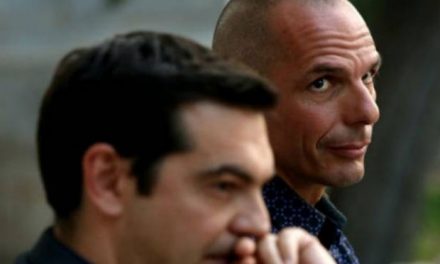Greece’s return to bond markets after a four-year exile hasn’t convinced economists it can avoid a third bailout.
Six out of 10 economists in a Bloomberg News survey said Greece will need to top up the 240 billion euros ($325 billion) of loans received from Europe and the International Monetary Fund since 2010, when it lost access to bond markets. The IMF forecasts Greece will have a 12.6 billion-euro financing gap next year.
“Greece’s ability to generate sufficient funds to cover that is not sufficient,” said Gianluca Ziglio, executive director of fixed-income research at Sunrise Brokers LLP in London, referring to the financing shortfall. “Eventually the European partners will have to come up with something to basically bridge the funding needs that Greece has from now to the time in which it can establish a regular and sizable market access.”
Greek bonds have rallied since the country undertook the biggest sovereign debt restructuring in history and came close to leaving the euro. That allowed the government to tap markets twice this year, raising 4.5 billion euros in three- and five-year bonds.
The yield on the 10-year benchmark fell as low as 5.59 percent last month, compared with a historic high of 44.21 percent in March 2012, on the eve of the restructuring. Yields have since ticked higher as missed debt payments by two companies in Portugal’s Espirito Santo group strained confidence in Europe’s peripheral markets. The yield on Greece’s 10-year bond was 6.23 percent at 4:36 p.m. in London.
Six-Year Slump
Greece’s government has turned around its public finances and is running a budget surplus before interest payments. The cuts it made to get there deepened the six-year slump that cost the country a quarter of its economic output and fueled popular opposition to the bailouts. As a result, Prime Minister Antonis Samaras has repeatedly pledged that Greece won’t need another bailout or new austerity measures.
Some economists don’t believe him. The proportion of those surveyed who said more aid will be needed hasn’t changed since a poll in April, just before Greece sold bonds in a return to markets that Samaras hailed as a vote of investor confidence.
“Greece will need at least another two years before it can regain budgetary sovereignty,” said Michael Michaelides, a rates strategist at Royal Bank of Scotland Plc in London. “Given the IMF will continue disbursing funds under the program and that any debt relief will probably be conditional, Greece will have to pass quarterly tests for IMF money and debt relief anyway.”
Troika Returns
The European Commission forecasts Greece’s public debt will peak at 177 percent of gross domestic product this year. The country’s primary budget surplus of 0.8 percent of GDP last year commits its euro-area partners to additional debt relief, provided it can convince them that it’s also abiding by the structural economic reforms agreed to in the bailout.
The financing gap is one issue that will be looked at when officials representing the euro area and IMF, known as the troika, return to Athens in September. One way to resolve it could be to use 11.5 billion euros of leftover bailout funds that had been earmarked for recapitalizing the country’s banks, according to Lefteris Farmakis, an analyst at Nomura International in London.
Politically Toxic
While the troika has rejected Greek proposals to use the funds elsewhere, saying a buffer is still needed, top executives at the Hellenic Financial Stability Fund, which manages the money, said in a July 15 interview that may change. Greek banks are unlikely to need it after an asset quality review and stress tests by the European Central Bank in October, they said.
“A third loan is unnecessary and politically toxic,” Nomura’s Farmakis said. “Part of the HFSF buffer should be available after the asset quality review, so with a bit of additional issuance through 2015 they should be able to cover the financing gap.”
Economists expect Greece’s economy to exit recession this year, expanding 0.2 percent, according to a separate Bloomberg News survey published on July 14. Consumer prices have dropped for 16 straight months — making the debt burden harder to pay off in real terms — and won’t start rising again until 2015, according to the economists.
“The Greek economy is showing signs that it is on the right road to recovery but a declaration of a return to economic normality is still premature,” said Oliver Salmon, an economist at Oxford Economics in London. “Prices are expected to start rising again in 2015, but disinflation will remain an ongoing phenomenon, which will hamper hopes that the debt burden can be inflated away.”



















